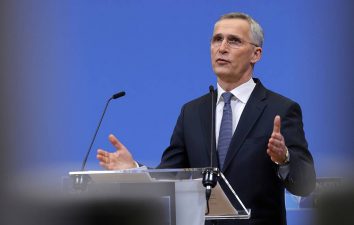Binance Holdings Ltd said on Friday that it was not in any talks with the Nigerian government about potentially paying up to $10 billion in fines, contradicting a government spokesman’s statement to the BBC hours earlier.
“We recently discussed ways to resolve issues with Nigeria, but we did not hear any demand for $10 billion,” a Binance official told Peoples Gazette shortly after the BBC said Bayo Onanuga purportedly announced the enormous penalties.
The Cayman Islands-based cryptocurrency giant said it was not in the mood to discuss paying the Nigerian government either to restore its services that were cut off recently or free its executives being held over alleged involvement in purported manipulation that led to the rapid collapse of the naira and associate consequences for historic inflation and poverty in Nigeria.
“Our aim is to chart a good relationship with the government and the people of Nigeria. We want to see our services restored in Nigeria very soon, but we have no intention of paying fines for personnel or services,” Binance added.
Asked for comments about Binance’s position, Mr Onanuga said his statement to the BBC was misrepresented in the media, noting that he never said the company had been informed or that the fine had been concluded by Nigerian regulators.
“I said our government may impose heavy fines on Binance for what happened,” Mr Onanuga told The Gazette. “I never said Binance had been informed about the fines or that it would definitely be $10 billion.
“I only said the amount may be imposed, which is because nothing has been finalised yet,” Mr Onanuga said, placing repeated emphasis on the uncertainties around the fines.
Mr Onanuga, a media aide to President Bola Tinubu, had accused the cryptocurrency platform of aiding those fixing the Nigerian exchange rate to sabotage the economy.
“Binance platform harbours people who fix the exchange rate which quickly affects the Nigerian economy for the time when Nigeria is trying to stabilize the economy,” Mr Onanuga told BBC.
“The platform fixes the exchange rate for the country and it is an illegal rate. The CBN is the only authority that can fix the exchange rate for the country,” he added.
The latest controversy with Binance came months after the Nigerian government made similarly false claims about its negotiations with the United Arab Emirates to resolve yearslong travel restrictions.
Following a bilateral discussion in Abu Dhabi, Nigerian officials falsely announced a deal had been reached that would see the Emirati authorities lift visa restrictions for Nigerians and allow its main carrier, Emirates, to resume Nigeria operations without preconditions.
The statement was promptly found to be false, complicating the talks and effectively rendering the multibillion-naira consultations fruitless.
Citing Financial Times, Peoples Gazette reported earlier this week that Nuhu Ribadu, the national security adviser, detained two Binance officials invited into the country by the country. The officials were also pressured to disclose a list of Nigerians on their platform. It was unclear what efforts Binance has activated to free its personnel, who were believed to have made trips to Nigeria under the last administration without raucuous.
Mr Onanuga, however, said detained “Binance staff cooperated with the government to provide information.”
Over the past week, federal authorities had clamped down on cryptocurrency platforms, raiding bureau de change operators nationwide in a bid to starve off the further decline of the national currency.
Olayemi Cardoso, Central Bank of Nigeria governor, had on Tuesday said over $26 billion passed through Binance in the past one year on Tuesday at the Monetary Policy Committee (MPC) meeting in Abuja
Last week, Binance confirmed it was working with Tinubu-led to block dollar-naira trading on the platform. In the same week, the government block Binance website to Nigeria users
On Wednesday, Binance disabled its peer-to-peer function for Nigerian users. Peer-to-peer function, popularly known as P2P, allows users, buyers and sellers to trade without third-party interference.
Source: Peoples Gazette




